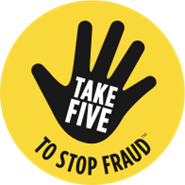
Investment scams
How to protect yourself from scammers offering fake investments that are worthless or don’t exist.
What is investment fraud?
In an investment scam, a criminal convinces their victim to move money to a fictitious fund or to pay for a fake investment. They will usually promise a high return to entice the victim into making the transfer. Criminals behind investment scams often use cold calling to target their victim and pressurise them to act quickly by claiming the opportunity is time limited. Adverts on social media usually offer unrealistic returns, and letters are also used heavily in investment scams.

Fake opportunities
You may be targeted by cold callers or presented with fake investment opportunities, promoted on search engines and social media. They may pressure you to act quickly and in many cases, they’ll ask you to leave your details for a call back to be arranged. The use of celebrity endorsements or testimonies from people who’ve allegedly received large profits may make it seem genuine, but these are fake.

Cloned websites
Criminals often set up cloned websites, which appear to be legitimate investment firms. They may even send out paperwork with official branding to add a layer of credibility to their scams. You may also receive an initial payment or even a couple of payments with ‘returns’ on your investment to convince you to invest larger amounts.

Personalisation
Criminals spend hours researching you for their scams and may even provide you with details of previous investments and shares you hold. They gather your personal information so they can tailor their messages to appear more convincing to the victim.

Screens sharing software
Criminals may get in touch claiming to be financial advisers and ask you to download a screen sharing software so they can make investments on your behalf. By downloading the software, they gain access to your personal and financial information.

Exploiting trust and promising great returns
Fraudsters will go to extreme lengths to steal your money. Many investment scams start with customers believing they are investing with a genuine company – it is common for criminals to clone websites. Scammers often use social media to target their victims – if you see an advert promising great returns on an investment, take extreme caution before proceeding. Use the FCA warning list before deciding to part with your money.
How to spot investment scams
- Your investment has time constraints, and you’re forced to make a quick decision.
- Returns are unusually high compared to market average.
- Quick or instant returns.
- Cloned websites may have low quality images and logos, broken links & poorly written text.
- Adverts on social media or ‘celebrity’ endorsed opportunities.
How to stay safe from investment scams
- Do your own thorough due diligence before parting with your cash.
- If you’re thinking about an investment opportunity, get independent financial advice from an FCA-regulated firm.
- Utilise the FCA warning list.
- Never allow anyone to take control of your phone or computer for any reason – a reputable business would never do this.
- If an offer sounds too good to be true, it probably is.
Other types of common scams
Fraud and Security
Investment scams
Staying safe from fraudsters impersonating people or organisations you trust
Fraud and Security
Purchase scams
How to spot when scammers are promoting goods or services that don’t exist.
Useful Resources

Action Fraud
Action Fraud is the UK's national reporting centre for fraud and cybercrime. This is where you should report fraud.

Get Safe Online
Get Safe Online is the UK's leading awareness resource, and offers free online security advice to help protect people and businesses from fraud and other issues.

Take Five
Take Five offer impartial advice to help prevent email, phone and online fraud. The national campaign focuses on criminals who impersonate trusted organisations and gives you tools to help fight fraud.